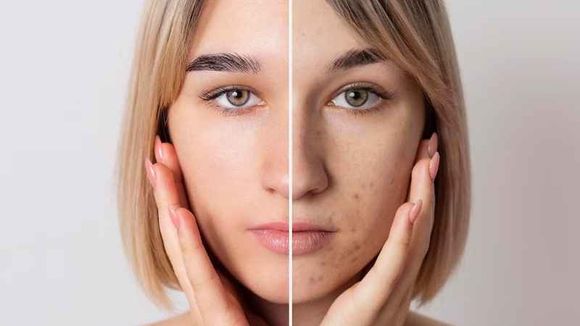What is acne?
Acne is a common skin condition that occurs when the hair follicles under the skin become clogged. Sebum — an oil that keeps skin from drying out — and dead skin cells clog pores, leading to forming of lesions, commonly referred to as pimples. Most often, they appear on the face, but can also appear on the back, chest and shoulders. [ref. 1]
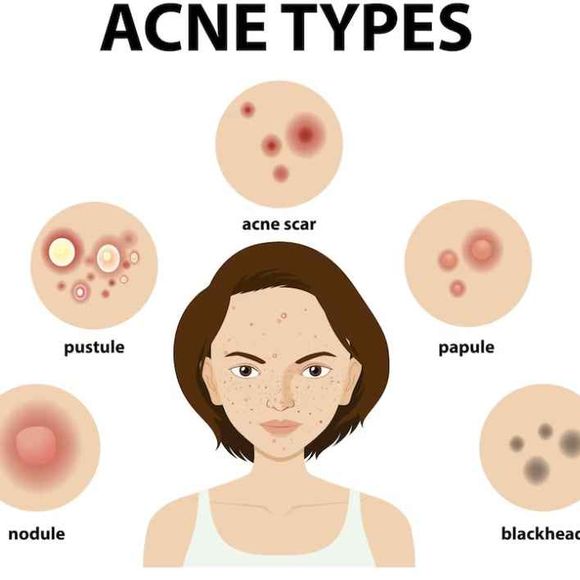
We distinguish several types of acne, including Acne vulgaris, Acne fulminans, Acne nodulo – cistica, Acne neonatorum, Acne contacta (contact acne), Acne medicamentosa, Acne excoriata. The reasons for it are diverse and according to them the treatment is different, but this is not planned for discussion in this topic.
Herbs for the treatment of acne
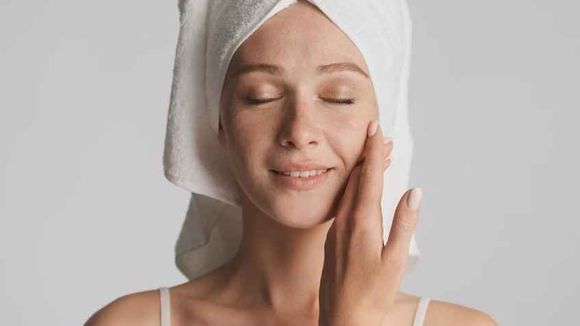
Manjista
Manjista (Rubia Cordifolia) is a perennial herbaceous plant popular in Ayurvedic medicine. It is believed to keep the lymphatic system active, which is crucial for healthy skin. Research has shown that the mangyster has anti-inflammatory, antibacterial, and antiandrogenic abilities that can help prevent and treat acne. [ref. 1]
Neem
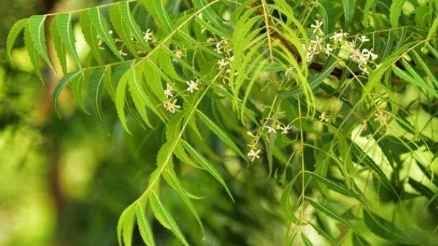
Neem (Azadirachta indica) is another popular Ayurvedic herb. [ref. 3] According to a 2010 study, neem oil contains compounds that exert various effects, including:
- Antibacterial
- Antifungal (e.g. dermatophytes, Candida albicans, Aspergillus spp.)
- Antiviral (e.g. herpes simplex virus-1 and coxsackie B4 virus)
- Antiseptic
- Antioxidant
- Anti-inflammatory action
Interesting are the limonoids in neem, such as azadirachtin, gedunin and nimbolide, which target multiple pathways in cancer through antiproliferative, proapoptotic, anti-inflammatory, antiangiogenic effects, and tumor invasion inhibition. [Ref. 4] In studies, the limonoids in this plant have been found to be an appropriate means of chemoprophylaxis and cancer therapy, but rigorous laboratory studies are needed.
Tea tree
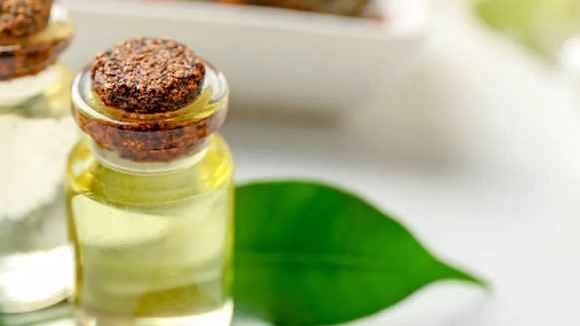
Tea tree (Melaleuca alternifolia) is an herb used to treat skin problems and wounds. It has antiseptic and anti-inflammatory abilities that can reduce the number of acne lesions. In one study of a topical gel containing 5 percent tea tree oil, it was compared to a topical cream containing 5 percent benzoyl peroxide. Both preparations reduce the number of inflamed and non-inflamed acne lesions. Although the action of tea tree oil takes longer, it leads to fewer side effects. These include dryness, itching, irritation and redness.
Tea tree oil has antimicrobial, antiseptic and anti-inflammatory properties, making it a popular remedy for acne. Research has shown that tea tree is also effective for wound healing. [ref. 5]
Hamammelis
Hamamelis (Hamamelis virginiana L.) contains astringent tannins that can relieve some types of acne by removing excess skin fat. It also has anti-inflammatory effects and can reduce skin redness. Hammamelis is often used alone or as a basis for homemade acne medications. [ref. 6]
Other herbs to treat acne
Other antiseptic, anti-inflammatory herbs that can help cure acne are:
- Calendula is commonly used in cosmetics and is known for its many benefits in dealing with skin problems, including acne and irritations.
- Chamomile (Matricaria) - Chamomile extract has natural healing and protective properties for the skin. It contains tannic acid, a substance commonly found in creams, sunscreens, and more. Chamomile has natural astringent and soothing properties.
- Lavender (Lavandula) - Lavender oil works to destroy bacteria and this can prevent the appearance of acne. Unclogs pores and reduces inflammation if applied to the skin. To use lavender oil for acne, dilute it in coconut oil or other base oil and apply it to the skin after washing your face.
- Rosemary (Rosmarinus officinalis) - With its powerful antibacterial qualities, rosemary essential oil helps fight the entry of acne bacteria into your pores. This quality, combined with the non-comedogenic properties of rosemary oil, means that acne has no chance, as the oil clears pores and forms a protective barrier against future skin disorders. [ref. 7]
How to use herbs to treat acne
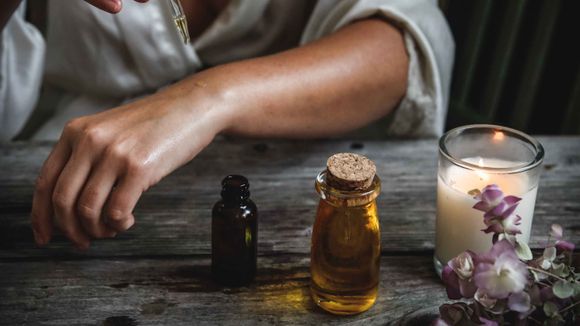
Hammamelis can be applied directly to the skin using a cotton swab. You can also combine it with base oil and other herbal remedies for acne. You should not take orally or inject witch hazelly.
You can use witch hazel as part of your routine to remove makeup and cleanse and refresh your skin. For best results, we recommend the following steps to create your own homemade potion:
- Add rind and hammamelis twigs to a large stainless steel saucepan.
- Cover with distilled water.
- Bring to a boil and simmer for at least 30 minutes.
- Refrigerate overnight.
- Strain the resulting liquid and pour into a glass jar.
- Store in the refrigerator.
Neem oil should be diluted with water or base oil, such as coconut oil or olive oil, before application. Neem oil soap is a great way to improve skin care. Keep in mind that you may not like the smell.
Manjista is often used in powder form and combined with other herbs such as neem. It is also used in products such as capsules and soaps.
Possible side effects when using herbs
Possible side effects associated with most herbal remedies for acne include an allergic reaction and skin irritation. If you experience inflammation, itching or burning, discontinue use and consult your doctor.
